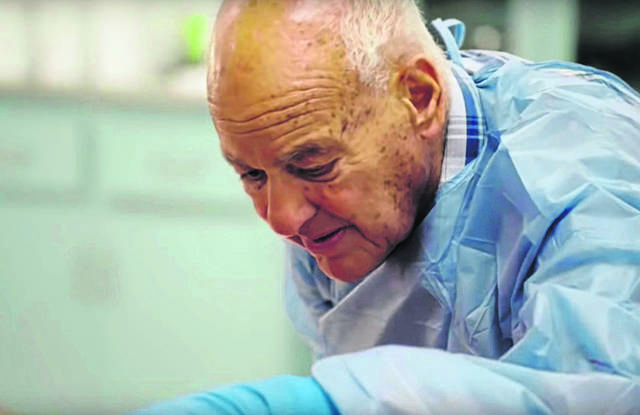https://mirror.triblive.com/local/cyril-wechts-memoir-tells-renowned-forensic-pathologistss-personal-story/
Cyril Wecht’s memoir tells renowned forensic pathologist’s personal story

Cyril Wecht has never been one to hold his tongue.
When the former Allegheny County coroner and county commissioner is bothered by something, he speaks his mind. The same holds true for his recently published memoir, “The Life and Deaths of Cyril Wecht: Memoirs of America’s Most Controversial Forensic Pathologist.”
The book, written by Wecht and Jeff Sewald, is a no-holds-barred account of his personal and professional life starting with his humble Hill District beginnings. It takes the reader through many of the high-profile cases he’s been involved with – O.J. Simpson, Kurt Cobain, the Menendez Brothers, Scott Peterson, Chandra Levy, Elvis Presley and Jeffrey Epstein, among others.
Wecht, who’s been called “the godfather of forensic pathology,” also shares gripping accounts of his work investigating the assassinations of President John F. Kennedy and presidential candidate Robert F. Kennedy. He makes clear he has never believed that Lee Harvey Oswald acted alone in the killing of JFK or even that Oswald necessarily fired the shots that killed the president.
During the course of his quest to determine who was actually behind the killing of JFK, Wecht details some startling discoveries. In 1972, he was granted permission to inspect the JFK autopsy materials, thus becoming the first non-government-related forensic pathologist to be given access to them.
When reviewing the materials, however, Wecht discovered that some highly significant items were missing.
“They had been in the government’s possession, so nobody could have touched them, but now the metal container which has held John Kennedy’s brain in formalin was no longer on the list of contents,” writes Wecht. “In addition, various photographs and microscopic tissue slides were also no longer listed. The president’s brain was missing!”
Wecht goes on to explain the reasons for his obsession with the JFK assassination.
“All in all, the JFK assassination case was a real eye-opener for me,” he writes. “I became aware of how governmental agencies and top-notch people can lie, manipulate, scheme, and deceive. I’m sure that, no matter what, the assassination and its aftermath certainly exacerbated, catalyzed and accentuated my strong feelings of disdain and outright rejection and hostility toward certain kinds of actions taken by our government.”
One government official Wecht makes clear he is not pleased with is Allegheny County District Attorney Stephen A. Zappala Jr. He goes into great detail about the confrontations he had with Zappala over Wecht’s insistence as county coroner that open inquests be conducted for all death cases involving police officers.
“As coroner, I had traditional inquisitorial power, and I used it to the fullest extent, which I believed was the right thing to do,” Wecht writes. “But Zappala was very unhappy about the situation and became increasingly hostile towards me. Over time, a split occurred between Zappala and me, and it kept widening.”
Wecht, who goes into great detail discussing his public corruption trials, feels Zappala played a significant role in propelling the second one which began after Wecht was indicted by a federal grand jury on 84 counts. They included charges that he had been using county resources, including vehicles and employees, for his private business.
One charge which Wecht expresses particular disgust over is the accusation that he supplied Carlow University with cadavers in exchange for the use of their laboratory space for his own practice. For its part, Carlow denied there was any such deal.
“The body-snatching issue was seized upon by the media and was the subject of some of the most horrible cartoons ever,” Wecht writes. “What made them especially horrible was the fact that I believe anti-Semitism was at their core. They made me look wicked and shadowy, like a ‘Shylock’ who was willing to stoop as low as selling human corpses for a handful of shekels. It was sickening.”
Zappala spokesman Mike Manko offered little comment about Wecht’s assessment.
“What this individual believes does not merit any sort of response,” Manko wrote in a statement.
Wecht writes about the trial in an extremely compelling way. He could have copped a plea but Wecht wrote in the book that he spent his entire nest egg defending himself against all 84 counts.
Spoiler alert – the trial ended in a hung jury.
“Even though I was angry with him many times, I had to admire him because he has such courage,” the late Pittsburgh Mayor Sophie Masloff is quoted as saying. “He could have pled ‘guilty’ to one charge and walked away with probation, probably, but he wouldn’t do it.”
Masloff’s voice is one of many featured in the book that describe their dealings with Wecht and share remarkable stories about this truly accomplished Pittsburgh character.
Copyright ©2026— Trib Total Media, LLC (TribLIVE.com)
